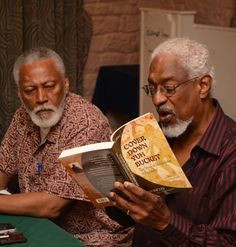Literacy Blogs
- All
- 3-cueing
- academic learning time
- academic vocabulary
- accommodations
- accountability testing
- Active View of Reading
- adolescent literacy
- afterschool programs
- alphabet
- amount of instruction
- amount of reading
- argument
- assessment
- auding
- author awareness
- automaticity
- balanced literacy
- beginning reading
- Book Buddies
- Book Flood
- challenging text
- classroom organization
- close reading
- coaching
- cohesion
- Common Core State Standards
- complex text
- comprehension strategies
- content area reading
- context analysis
- curriculum materials
- Daily 5
- decoding
- departmentalization
- DIBELS
- dictionary skills
- digital texts
- disciplinary literacy
- dyslexia
- early interventions
- effective teachers
- Emily Hanford
- executive function
- family literacy
- fingerpoint reading
- foundational skills
- graphic novels
- guided reading
- heterogeneous grouping of students
- homework
- improving reading achievement
- independent reading
- independent reading level
- informal reading inventories
- informational texts
- instructional level
- invented spelling
- jigsaw instruction
- knowledge
- leadership
- learning disabilities
- Lexiles
- linguistic comprehension
- listening comprehension
- literacy charities
- literacy policy
- literary interpretation
- main idea
- morphology
- motivation
- narrative text
- National Early Literacy Panel
- nonsense words
- oral language
- oral reading fluency
- paraphrasing
- Pause, Prompt, Praise (3P)
- personalized learning
- phonemes
- phonemic awareness
- phonics
- press and media
- principals
- prosody
- Readers' Workshop
- reading comprehension
- reading disabilities
- reading intervention
- reading levels
- reading models
- Reading Recovery
- reading research
- reading skills
- reading strategies
- reading to children
- reading wars
- reading-writing relations
- remedial reading
- rereading
- Response to Intervention
- Scarborough's Rope
- science of reading
- seatwork
- semantics
- sentence comprehension
- sequence of instruction
- set for consistency
- set for variability
- shared reading
- shared reading
- sight vocabulary
- simple view of reading
- Simple View of Reading
- small group instruction
- social studies
- sound walls
- Special Education
- speech-to-print phonics
- spelling
- stamina
- summarizing
- Sustained Silent Reading
- syllabication
- syntax
- syntax
- testing
- text complexity
- text interpretation
- text reading fluency
- text structure
- theme
- think-pair-share
- trauma
- visualization
- vocabulary
- word walls
- writing
- zone of proximal development (ZPD)
Disciplinary Vocabulary
When I was 8, there were two boys, Chris and Paul. They were both tow-heads, gentle and quiet, with loping walks; and both could draw beautifully… if a teacher struggled to draw a straight line or a round circle on the chalkboard, she’d ask Chris or Paul, who could do it, seemingly without effort. Oh, and by the way, they were identical twins. I couldn’t tell Chris and Paul apart. Few students or teachers could. At the time, I was jealous — not of their sweetness or facility — but of ...
Why Research-Based Reading Programs Alone are Not Enough
Tim, Every teacher has experienced this. While the majority of the class is thriving with your carefully planned, research supported instructional methods, there is often one kid that is significantly less successful. We work with them individually in class, help them after school, sometimes change things up to see what will work, bring them to the attention of the RtI team that is also using the research supported instructional methods. But what if the methods research support for the majority of kids don't work for this kid? Several months ago I read an article in Discover magazine called "Singled Out" by Maggie ...
Making Whole Class Work More Effective
Recently, I wrote about the quandary of grouping. Small group instruction supports greater student engagement, higher amounts of interaction, greater opportunity for teacher observation, and more student learning. However, the benefits of small group are balanced by the relative ineffectiveness of most seatwork activities. Subtracting the downside of working on one's own away from the teacher from the clear benefits of small group teaching, one ends up with little advantage to all of the effort of orchestrating the small-group oriented classroom. Despite this, the benefits of small group teaching is so ...
A Disciplinary Literacy Bibliography
Blast from the Past: Since this entry was originally published research on disciplinary literacy has burgeoned. This update increases the bibliography greatly and this big increase in emphasis should encourage and support those who are trying to bring disciplinary literacy to adolescents around the world. These days I hear a lot of reading authorities talking (and writing) about disciplinary literacy, but they really mean adolescent literacy or content area reading and writing. They don't understand the distinction that is being made. ...
An Argument About Matching Texts to Students
Blast from the Past: This entry was originally published on May 17, 2015 and reposted on July 13, 2017. Between the two publication dates much has occurred in the world of challenging text. Various authorities who tout schemes for matching kids to texts have made changes to how they do the matching. In other words, they took criteria for identifying the instructional level and changed the numbers so that kids would be in somewhat more difficult text. That's a good thing as it means more kids will now get opportunities to read materials at their interest levels or their intellectual ...
How Much Text Complexity Can a Teacher Scaffold?
Blast from the Past: This entry was first posted on May 13, 2015 and it was reposted on September 24, 2018. This question has been coming up again recently, so I took a look at my original answer. It is still pretty darn good. Older students have been telling me how much they hate working in what they call the “stupid books,” meaning books at their supposed reading levels that are below their levels of intellectual and social functioning. Despite claims by proponents of “guided reading” giving kids such a steady diet of easy-reading books is definitely not in their best interests. Teacher question: How much of a "gap" can ...
Should We Teach Spelling? Part II
My last blog entry was written in response to a fifth-grade teacher who wanted to know about spelling instruction. Although teachers at her school thought that formal spelling instruction, like working with word lists, was a bad idea, it turns out that such teaching is beneficial to kids. The same can be said for studying word structure and its implications for spelling, pronunciation, and meaning. The best reviews of this research have consistently found that spelling instruction leads to spelling improvement, but it also leads to improvements in reading and writing, so it can be ...
Should We Teach Spelling?
Blast from the Past: This entry was first published on April 30, 2015, and was reissued on January 17, 2018. This issue arises again and again, but the answer doesn't seem to change. If you like this, there was a part II in the first week in May 2015. I often hear concerns about our students' poor spelling abilities and have been thinking about practical ways to address this issue. Although we want to continue to steer away from memorized lists that are often not retained, I want to get your feedback about incorporating more word study in your ELA block. I ...
Round Robin by Any Other Name... Oral Reading for Older Readers
Blast from the Past: This entry was first published on April 23, 2015; and was re-issued on October 19, 2017. Some oral reading questions came up this week that reminded me of this blog. I'd point out that since its release, Tim Rasinski has shown that even struggling college students need fluency work--well beyond the middle school focus of this blog. Finally, last week Jan Hasbrouck let me know that she and Gerry Tindal have updated their oral reading norms: http://www.brtprojects.org/publications/technical-reports/. Given all of that, this seems timely. Teacher question: I am seeking your advice based on the email correspondence below that I ...
Is Rhyming Ability Important in Reading?
Teacher question: Our district is wrestling with how much emphasis to give rhyming as an early literacy skill. We had previously downplayed rhyming as a necessary focus but the new CA ELA/ELD Framework and CCSS where rhyming is specifically called out has resurfaced old questions. Our struggle is this.... with our very high (87%) English Learner population, rhyming is one of the later skills acquired for these students in Preschool through grade 1. Reading research seems to support the idea of rhyming as a pre-requisite to reading; exposure to this kind of play with words and "word families" gives children another pathway ...









